Coronavirus death toll tops 20,000 in New York state
New York state reported 952 new deaths from COVID-19 over the past 24 hours.
A pandemic of the novel coronavirus has now killed more than 268,000 people worldwide.
Over 3.8 million people across the globe have been diagnosed with COVID-19, the disease caused by the new respiratory virus, according to data compiled by the Center for Systems Science and Engineering at Johns Hopkins University. The actual numbers are believed to be much higher due to testing shortages, many unreported cases and suspicions that some governments are hiding the scope of their nations' outbreaks.
Since the first cases were detected in China in December, the United States has become the worst-affected country, with more than 1.2 million diagnosed cases and at least 75,543 deaths.
Today's biggest developments:
Here's how the news is developing today. All times Eastern. Please refresh this page for updates.
7:05 p.m.: Nevada to reopen restaurants, salons, outdoor malls starting Saturday
Nevada will begin reopening select businesses, including restaurants, starting Saturday, Gov. Steve Sisolak announced.
As part of phase one of the state's reopening plan, restaurants can start serving at 50% dine-in capacity. Employees must wear face masks and bar areas and casino restaurants will remain closed.
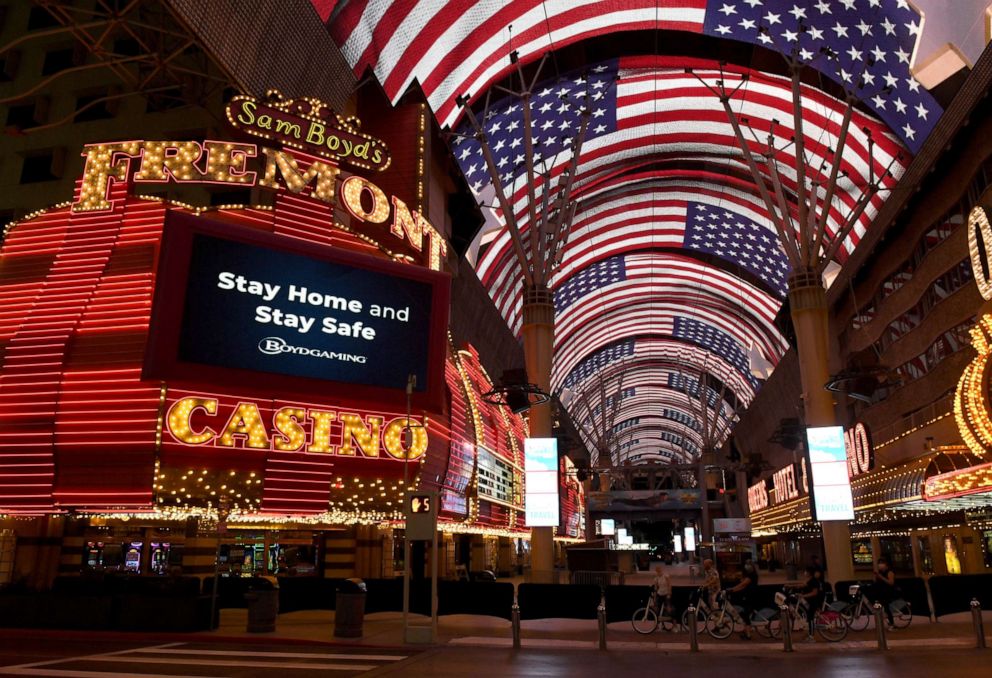
Barber shops, hair salons and nails salons can reopen by appointment only, with partitions between stations encouraged.
Retail can reopen at half fire-code capacity. Outdoor malls can also open, but indoor malls will remain closed save for curbside pickup.
Face masks for customers are strongly encouraged but not required, Sisolak said.
Phase one will last through May 30, at which point the state will consider more openings.
Casinos remain closed at this time. On Thursday, the Nevada Gaming Commission approved reopening guidelines issued by the state Gaming Control Board, which would include cutting casino capacity in half when an opening date is decided.
6:30 p.m.: Frontier to start temperature screenings June 1
Frontier will begin temperature screenings for all passengers and crew starting June 1, the airline announced Thursday.
Anyone with a temperature exceeding 100.4 degrees will be denied boarding, the airline said.
Frontier is the first U.S. airline to announce temperature screenings.
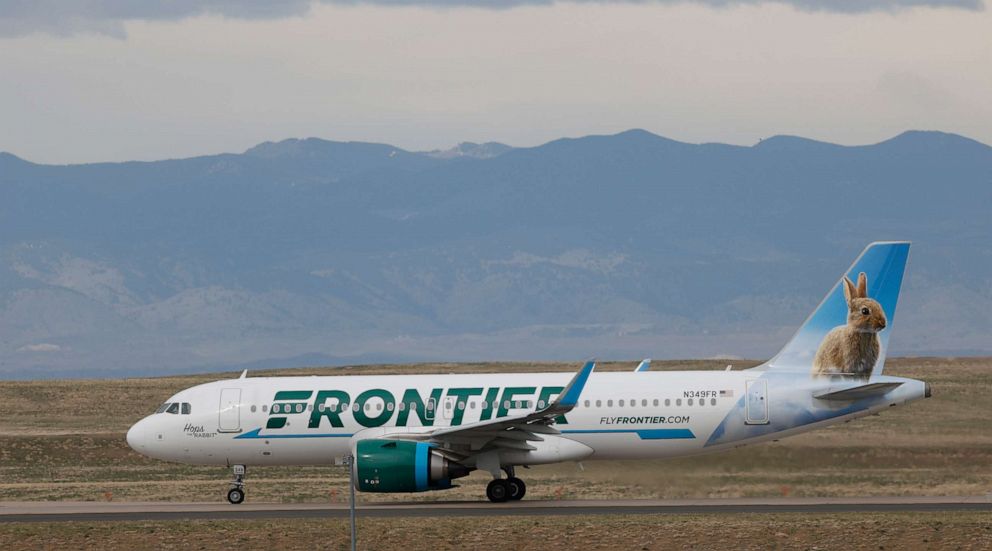
This Friday, the airline's face-mask requirement for passengers goes into effect.
Delta, American, United and JetBlue have also announced they will require passengers to wear face coverings.
3:20 p.m.: Michigan governor extends stay-at-home order, OKs manufacturing to continue next week
Michigan Gov. Gretchen Whitmer said she will extend her state's stay-at-home order from May 15 to May 28.
The governor, however, will be easing some of the restrictions put in place to combat the coronavirus. She said she would allow Michigan's manufacturing plants, including automobile factories, to resume on May 11.
"Manufacturing is an important part of our economy, there's no question. And as we've done the risk assessment, we feel comfortable that with these safety protocols we can safely re-engage," she said.
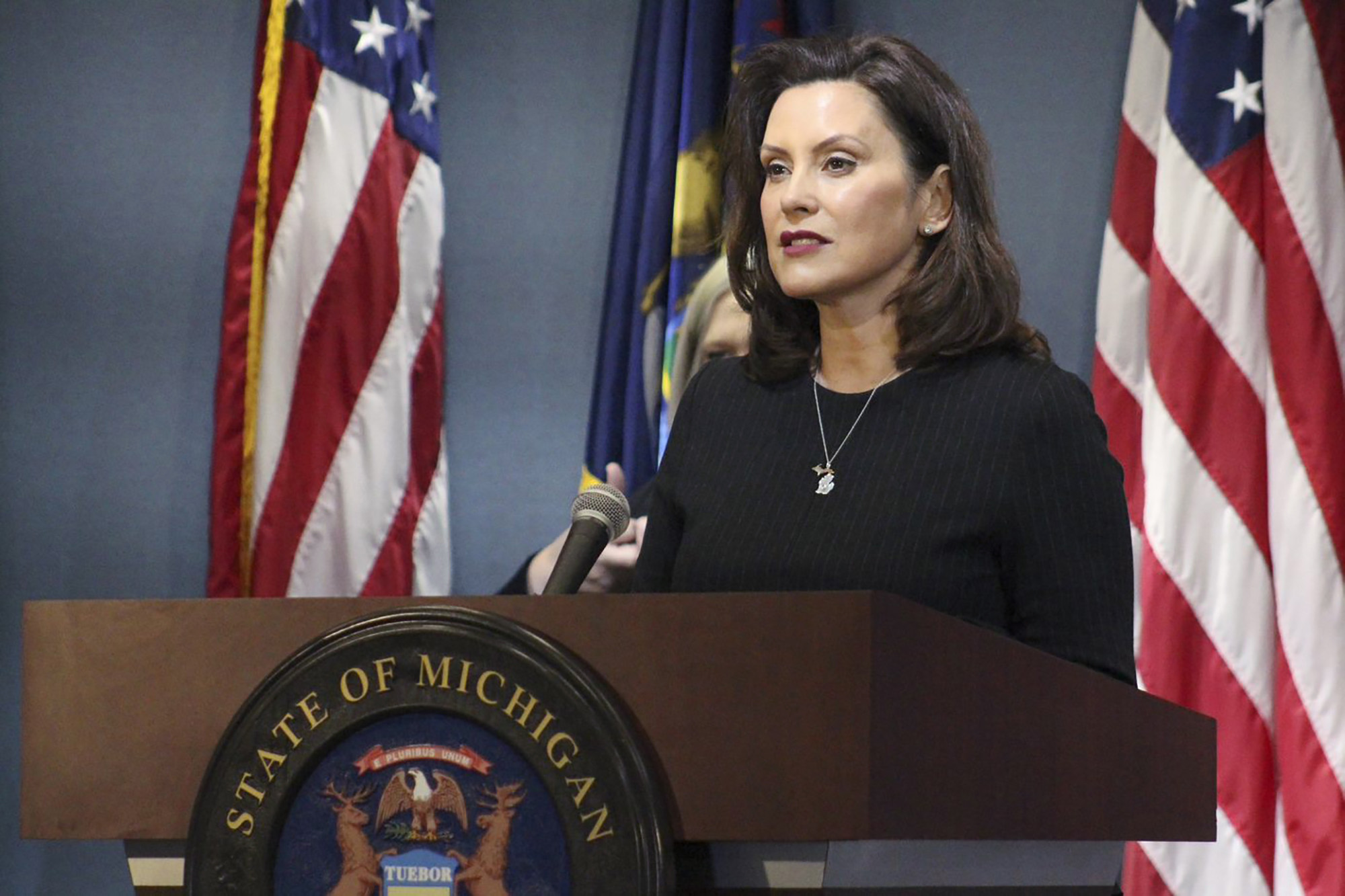
Whitmer said the three big carmakers and UAW will begin work at 25% capacity.
Last week, Whitmer issued new executive orders that extended the state's emergency order after the Republican-led legislature voted not to extend it past April 30. She has faced calls from some leaders and opponents, who have held rallies at the state capitol, to reopen the state.
As of Thursday, Michigan had 45,646 coronavirus cases and 4,343 deaths, the governor said. The seven-day average number of cases is down 15 percent from the past week, according to Whitmer.
2:05 p.m.: Amtrak mandates that passengers wear masks
Amtrak announced it will enforce new rules for passengers and change its service to provide better safety during the pandemic.
Starting May 11, all customers who are in stations, in trains and thruway buses will be required to wear a face covering.
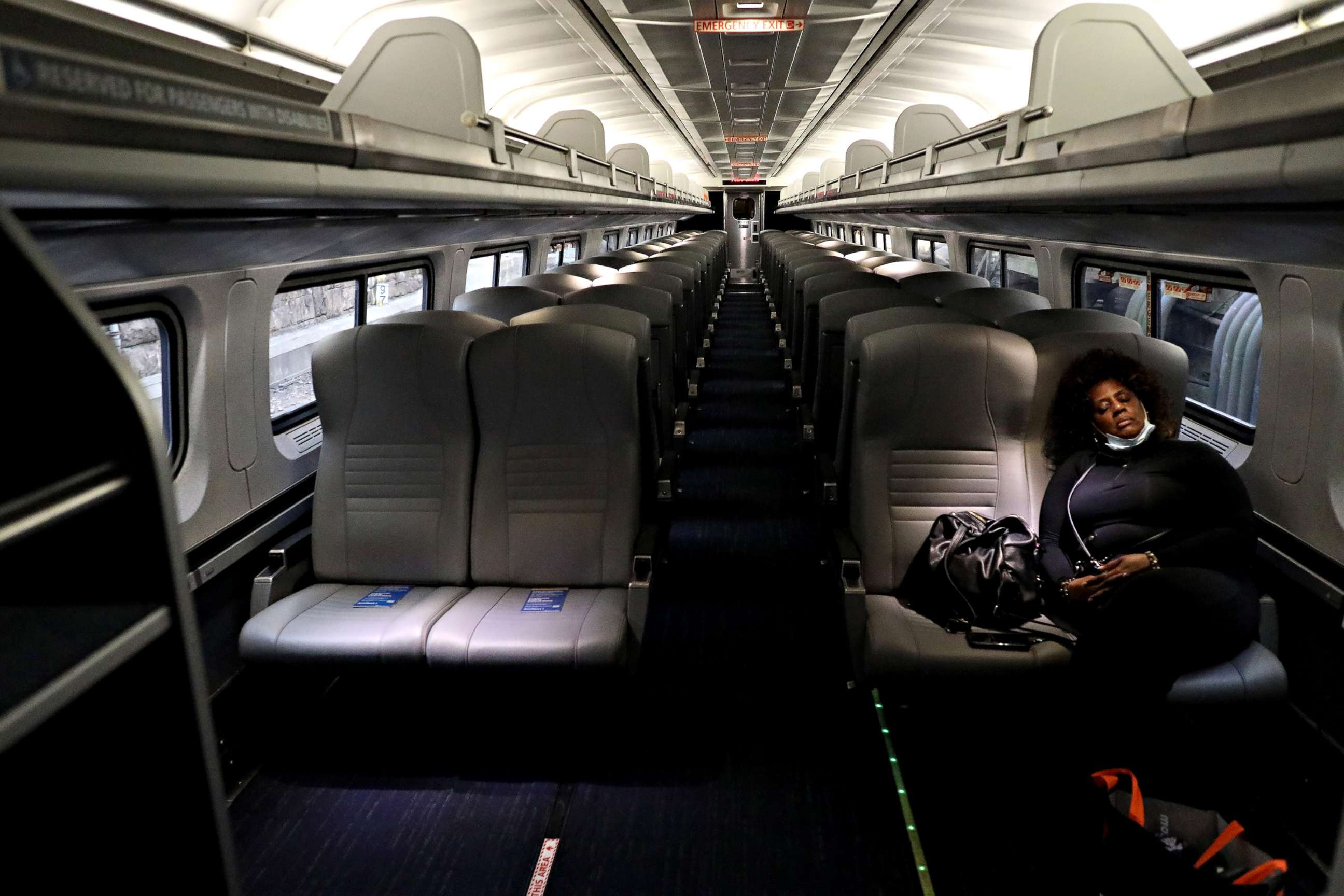
"The safety of Amtrak’s customers and employees is our top priority," the rail operator said in a statement.
The company added that it will reduce coach class and business class to 50% capacity and go cashless in its stations. Markers will be placed on the floor of trains, stations and other areas to help customers socially distance, according to Amtrak.
1:42 p.m.: Texas cases grow by more than 900, Massachusetts sees more than 1,700 new cases
The number of new COVID-19 cases in Texas continues to grow as the state eases its restrictions for businesses.
The state saw 968 cases on Thursday, bringing the total number of coronavirus cases to 35,390, according to Texas health officials. There were 973 reported fatalities statewide, a jump of 25 from Wednesday.
Gov. Greg Abbott allowed certain stores to reopen last weekend, including restaurants and retail, and this weekend hair and nail salons can resume.
In Massachusetts, Gov. Governor Charlie Baker warned that the state had a lot of work to do after it experienced an uptick in cases.
On Thursday, there were 72,025 confirmed COVID-19 cases, an increase of 1,754 from the previous day, state health officials said. Massachusetts recorded 208 new deaths on Thursday, bringing the total to 4,420.
1:34 p.m.: Pentagon requires new military recruits to get a waiver if they were hospitalized by COVID
U.S. officials confirmed to ABC News that the Pentagon has instituted an "interim guidance" for anyone who was hospitalized by the virus and wants to enlist in the armed services.
Those individuals would be deemed medically disqualified and would have to get a service waiver to join the military, according to the official. The Pentagon is concerned the hospitalization could affect the potential recruit's lungs and other organs, the official said.
The policy is still evolving, the official said.
The Pentagon said as of Thursday 5,086 service members contracted the disease. Of those members, 1,913 recovered, according to the Pentagon.
11:45 a.m.: New research finds virus was circulating in France by mid-January
An analysis by a nonprofit private research institution in Paris found that the novel coronavirus had been circulating in France since at least January.
Researchers at the Pasteur Institute analyzed a large number of patient samples collected in France between Jan. 24 and March 24, and they looked at different strains of the virus, their relationship to each other and the genetic diversity of the different strains circulating in France. The researchers compared this to international data by working with scientists in Europe, Asia and North America.
The analysis showed that the virus was already circulating at a low level in France by mid-January and that the people who were infected with that strain had not recently traveled to China. These individuals tended to have mild symptoms or none at all, according to a report from the Pasteur Institute.
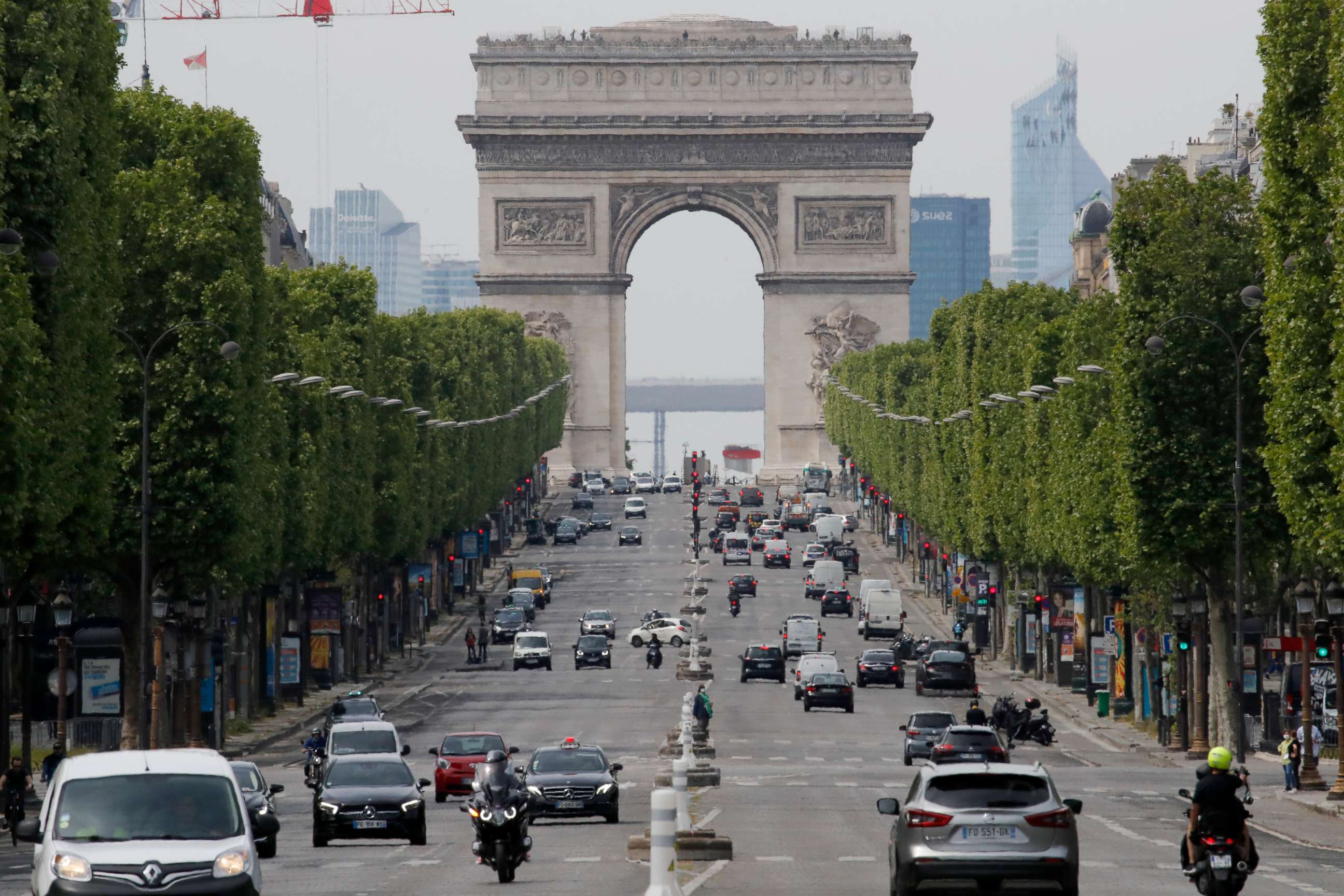
France reported its first confirmed case of COVID-19 in the southwestern city of Bordeaux on Jan. 24. It was also the first reported case in Europe. This case and several others that followed were all linked to travel from China. Then, within days of a major outbreak emerging in Italy in late February, a number of cases reported in France were linked to people who had either recently traveled to Italy or had been in close contact with someone who had.
But the Pasteur Institute's findings disprove this travel-based narrative.
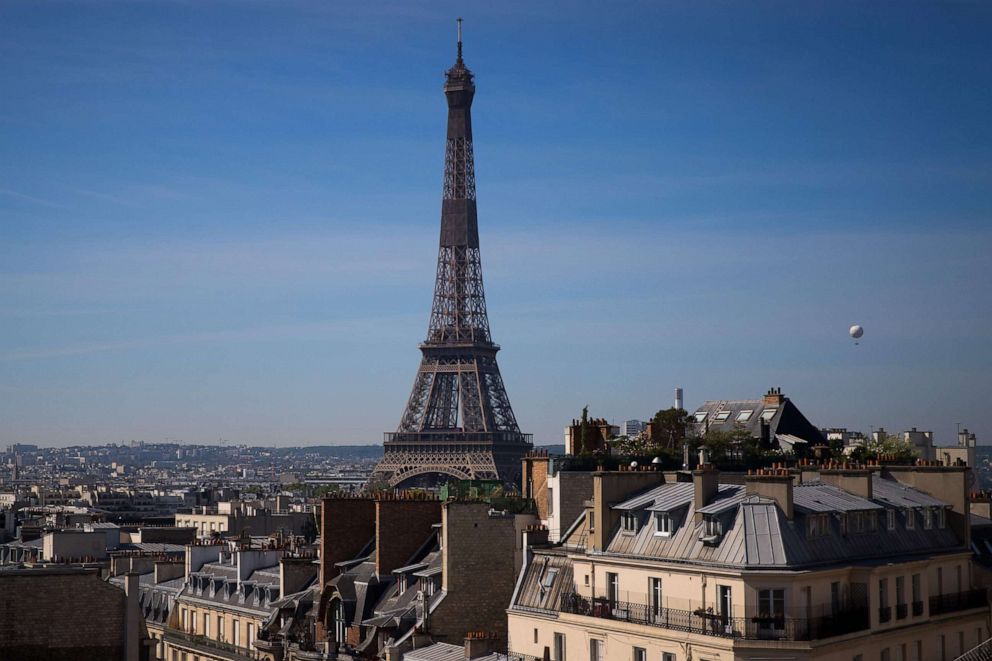
The report is backed up by separate research by Dr. Yves Cohen, an intensive care chief in Paris, who retested samples that French hospitals had taken from pneumonia patients in December and January and retrospectively identified a positive case of COVID-19 from the Paris suburb of Bondy on Dec. 27. The patient in this case had not traveled to China nor Italy.
Cohen told French media that the man may be France's "Patient Zero." He has urged doctors to retest all samples from pneumonia patients.
With more than 174,000 diagnosed cases of COVID-19 and over 25,000 deaths, France is one of the worst-affected countries in the coronavirus pandemic, according to a count kept by Johns Hopkins University. The European country has been on a nationwide lockdown since March 17, though French Prime Minister Edouard Philippe announced Thursday that the country will start easing restrictions on Monday.
11:24 a.m.: US service member who works at White House tests positive for virus
A U.S. service member who works at the White House has tested positive for the novel coronavirus.
President Donald Trump and Vice President Mike Pence both subsequently tested negative for the virus, according to White House spokesperson Hogan Gidley.
“We were recently notified by the White House Medical Unit that a member of the United States Military, who works on the White House campus, has tested positive for coronavirus,” Gidley said in a statement Thursday. “The president and the vice president have since tested negative for the virus and they remain in great health.”
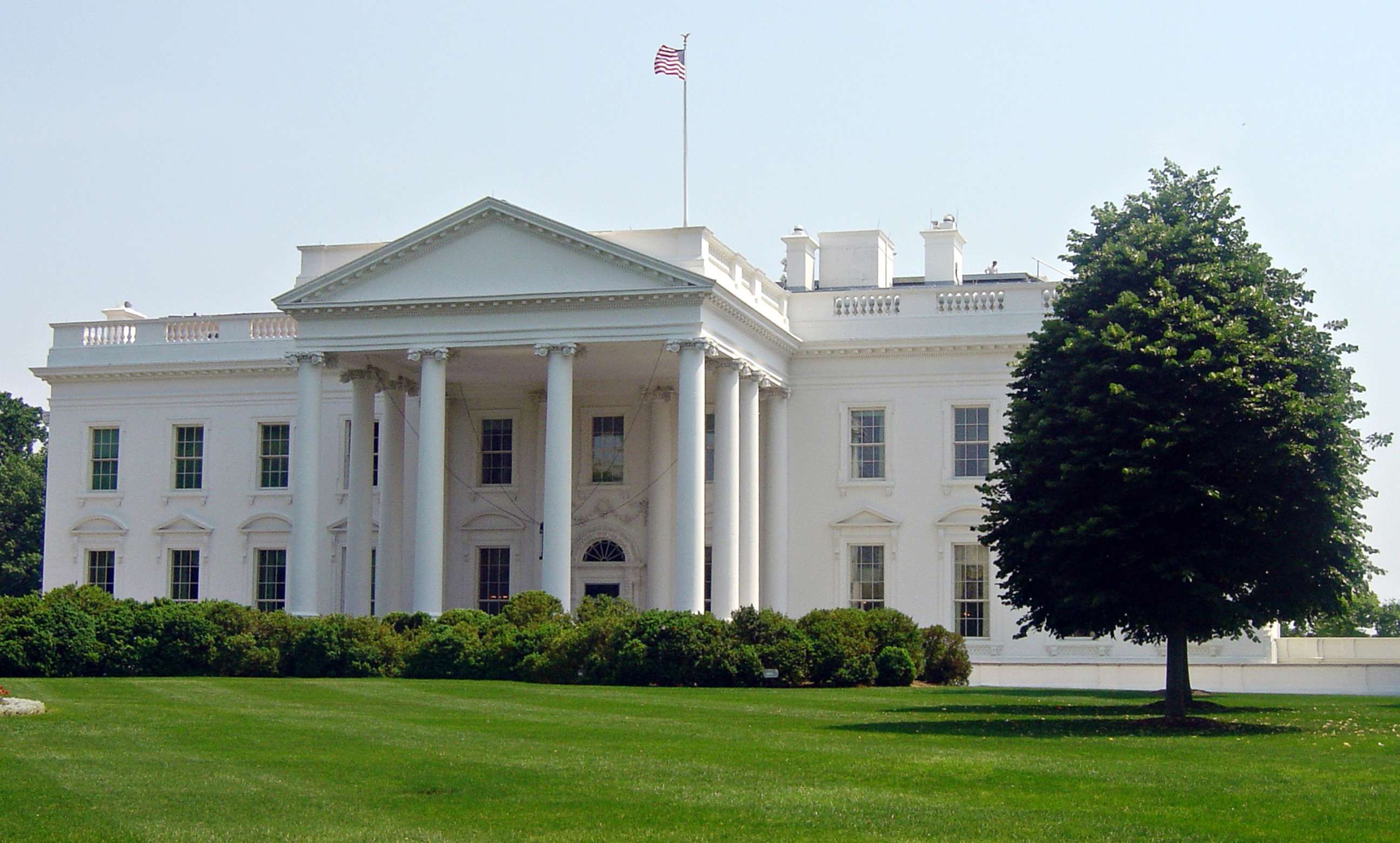
CNN, which first reported the news, said the individual is a U.S. Navy member who serves as one of Trump's personal valets, part of an elite military unit that often works very closely with the president and first family.
10:45 a.m.: Up to 190,000 people could die of COVID-19 in Africa if not controlled, WHO warns
A new study by the World Health Organization estimates that as many as 190,000 people in Africa could die from the novel coronavirus and up to 44 million could get infected in the first year of the pandemic if containment measures fail.
The researchers behind the study, which is based on prediction modeling, looked at 47 African nations with a total population of 1 billion. The model projects the observed slower rate of transmission, lower age of people with severe disease and lower mortality rates compared to what is seen in the worst-affected countries in the rest of the world.
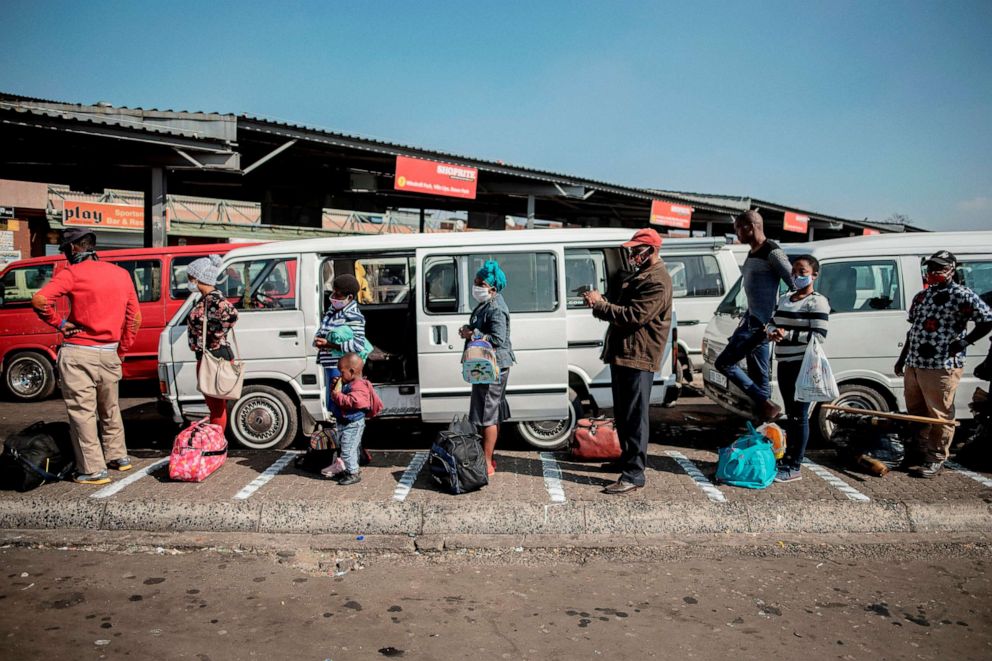
The lower rate of transmission, however, suggests a more prolonged outbreak over a few years, according to the study.
"While COVID-19 likely won’t spread as exponentially in Africa as it has elsewhere in the world, it likely will smolder in transmission hotspots," Dr. Matshidiso Moeti, the WHO regional director for Africa, said in a statement Thursday. "COVID-19 could become a fixture in our lives for the next several years unless a proactive approach is taken by many governments in the region. We need to test, trace, isolate and treat."
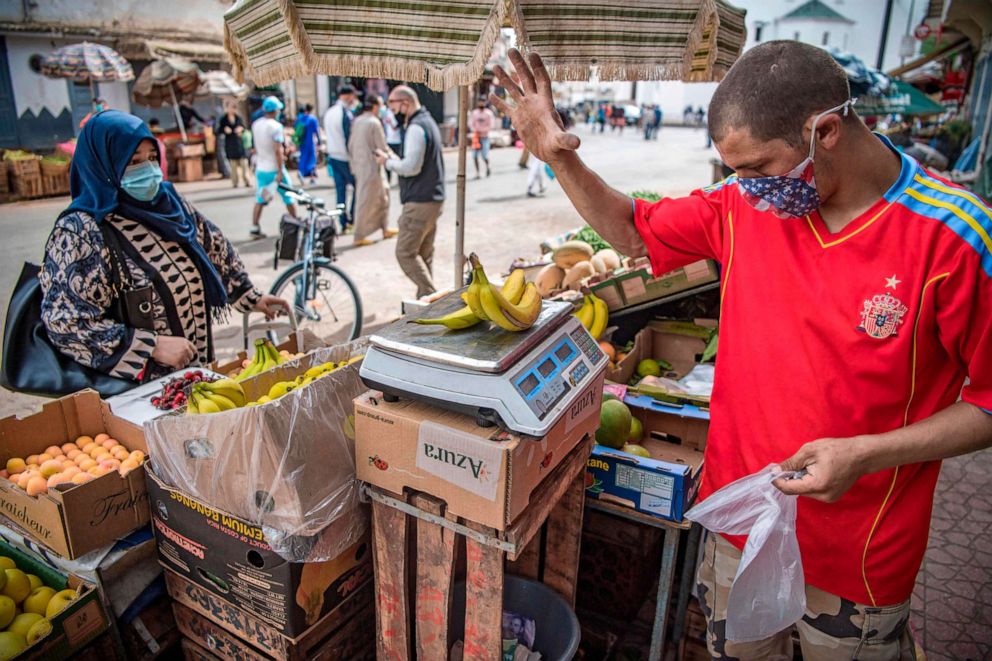
The WHO warned that the predicted number of patients requiring hospitalization would seriously strain the available medical capacity in much of Africa. Containment measures, such physical distancing and frequent hand washing, aim to slow down the transmission of the virus so its impact happens at a rate manageable for the local health systems. Smaller African nations were at a high risk if containment measures are not prioritized, according to the study.
"The importance of promoting effective containment measures is ever more crucial, as sustained and widespread transmission of the virus could severely overwhelm our health systems," Moeti said. "Curbing a large-scale outbreak is far costlier than the ongoing preventive measures governments are undertaking to contain the spread of the virus."
9:21 a.m.: Company says experimental vaccine has been cleared by FDA for phase 2 trial
Biotech company Moderna said Thursday that its experimental vaccine for the novel coronavirus has been cleared by the U.S. Food and Drug Administration to proceed to the next phase of a clinical trial.
The vaccine, mRNA-1273, was the first COVID-19 vaccine candidate to be tested on humans in a clinical trail in the United States. Phase two of the study is "expected to begin shortly," according to a press release from Moderna.
The Massachusetts-based company said it is "finalizing protocol" for phase three of the study, which is expected to begin early this summer.
ABC News has reached out to the FDA for comment.
Tune into ABC at 1 p.m. ET and ABC News Live at 4 p.m. ET every weekday for special coverage of the novel coronavirus with the full ABC News team, including the latest news, context and analysis.
7:57 a.m.: McDonald's employees will have 'full recovery' from shooting, CEO says
McDonald's CEO Chris Kempczinski said the two employees who were shot at one of the fast-food chain's locations in Oklahoma City are doing "OK" and will "have a full recovery."
A customer allegedly opened fire on the McDonald's workers on Wednesday night after police say she became angry when she was told the restaurant's dining room was closed due to the coronavirus pandemic.
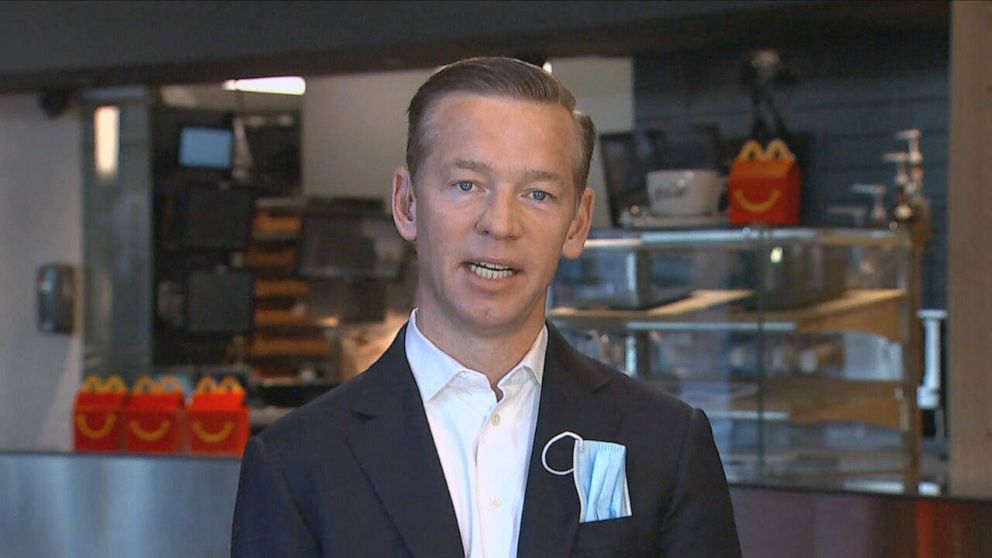
"Obviously it's a heinous crime, particularly because these two people were trying to really support public health," Kempczinski told ABC News in an interview Thursday on "Good Morning America."
"I think what you're seeing in this situation is really what you're seeing in a variety of situations across the country, which is this tension about (re)opening," he added. "But there's absolutely no excuse for violence, particularly gun violence. So I'm just happy our people are going to be okay."
7:22 a.m.: Coronavirus death toll tops 20,000 in New York state
The death toll from the novel coronavirus in New York state has surpassed 20,000.
The northeastern U.S. state reported 952 new deaths from COVID-19 over the past 24 hours. Health officials initially recorded just 232 new deaths on Wednesday but then added 720 more to the database overnight after being reclassified as attributable to COVID-19.
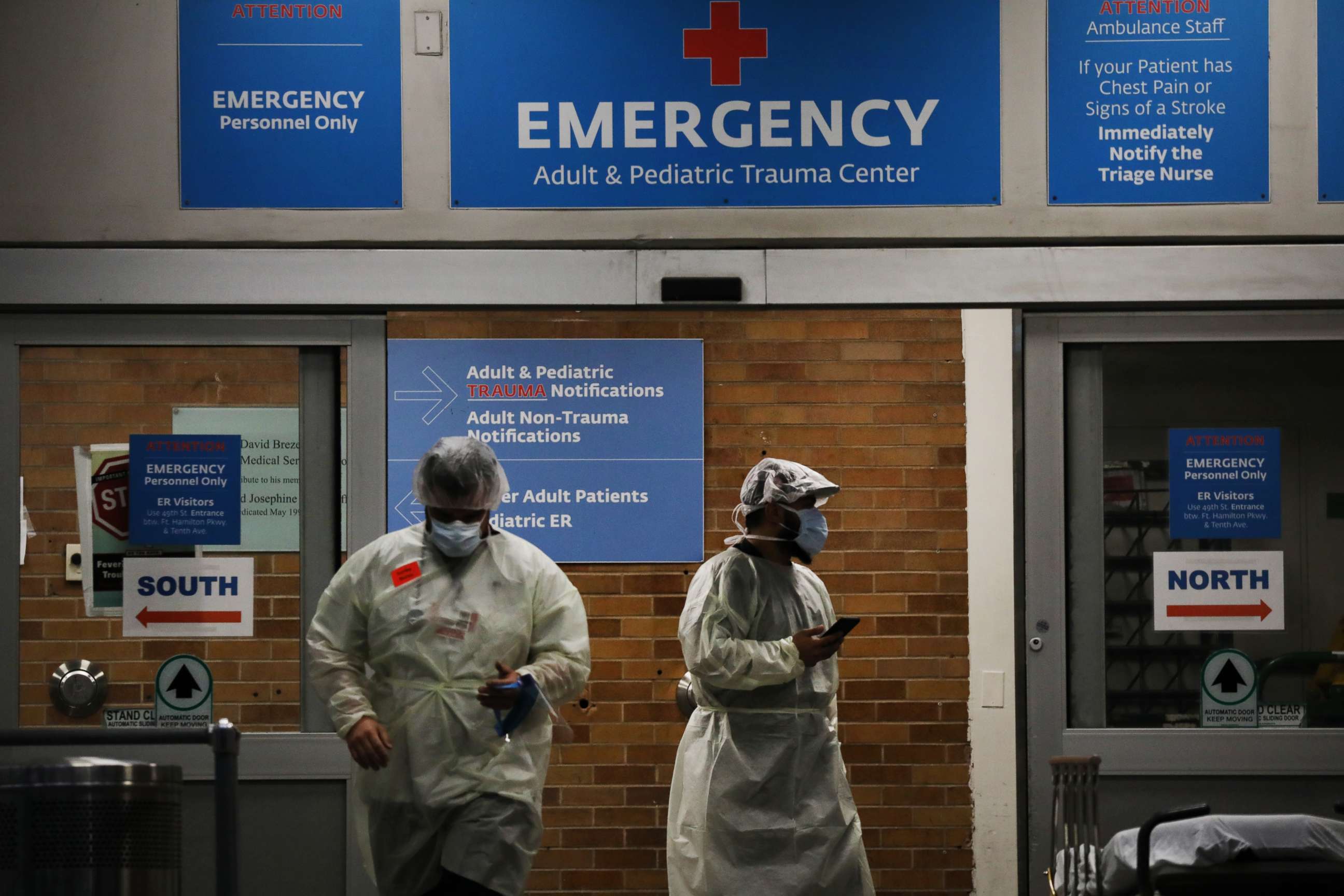
The grim milestone comes just three weeks after New York state marked 10,000 deaths.
There are now 323,978 people across the state who have tested positive for the novel coronavirus and at least 20,597 have died, according to health officials. A vast majority of those deaths -- over 14,000 -- occurred in New York City.
6:50 a.m.: Poland postpones presidential election due to pandemic
Poland has postponed its upcoming presidential election due to concerns about the spread of the novel coronavirus.
The lower house of Polish parliament overturned the opposition-controlled Senate's veto on legislation enabling a postal ballot to take place for electing the country's next president. Although voting by mail will take place after all, the leaders of the coalition government agreed that the election will not be held this month as originally planned.
A new date for the election, which was scheduled to take place on Sunday, will be decided at a later time.
Nearly 15,000 people in Poland have been diagnosed with COVID-19 and at least 737 have died, according to a count kept by Johns Hopkins University.
What to know about coronavirus:
- How it started and how to protect yourself: Coronavirus explained
- What to do if you have symptoms: Coronavirus symptoms
- Tracking the spread in the U.S. and worldwide: Coronavirus map
6:09 a.m.: Russia reports record daily rise in COVID-19 cases
Russia saw a record daily rise in COVID-19 cases on Thursday, with 11,231 new infections reported over the past 24 hours.
It's the fifth day in a row that Russia has reported more than 10,000 new cases of COVID-19. The latest daily tally shatters the country's previous record of 10,633 new infections reported on Sunday, according to data released by Russia's coronavirus response headquarters.
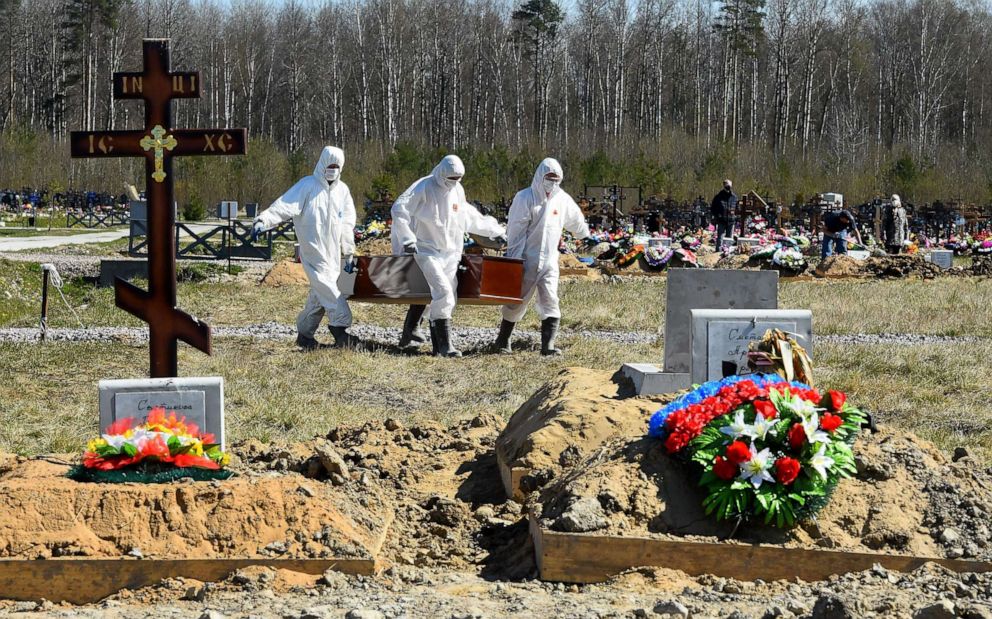
Russia now has the world's second-fastest rate of new infections in the coronavirus pandemic, behind the United States.
Russia has reported 165,929 confirmed cases of COVID-19 and 1,625 deaths. The country's mortality rate has remained relatively low with just 88 fatalities reported in the past 24 hours, according to the coronavirus response headquarters.
5:20 a.m.: China downgrades all areas to low-risk for COVID-19
China has downgraded all areas of the world's most populous country from high- to low-risk for the novel coronavirus.
Mi Feng, a spokesperson for China's National Health Commission, told a press conference in Beijing on Thursday that the decision was made as the number of new cases continues to hover just above zero and no new deaths have been reported for 22 consecutive days. However, Mi cautioned there is still uncertainty about the epidemic situation and that efforts must remain in place to prevent a resurgence of the virus, according to state-run Xinhua News Agency.
The National Health Commission said Thursday that just two new cases of COVID-19 had been reported on the Chinese mainland -- both of which were imported from abroad.
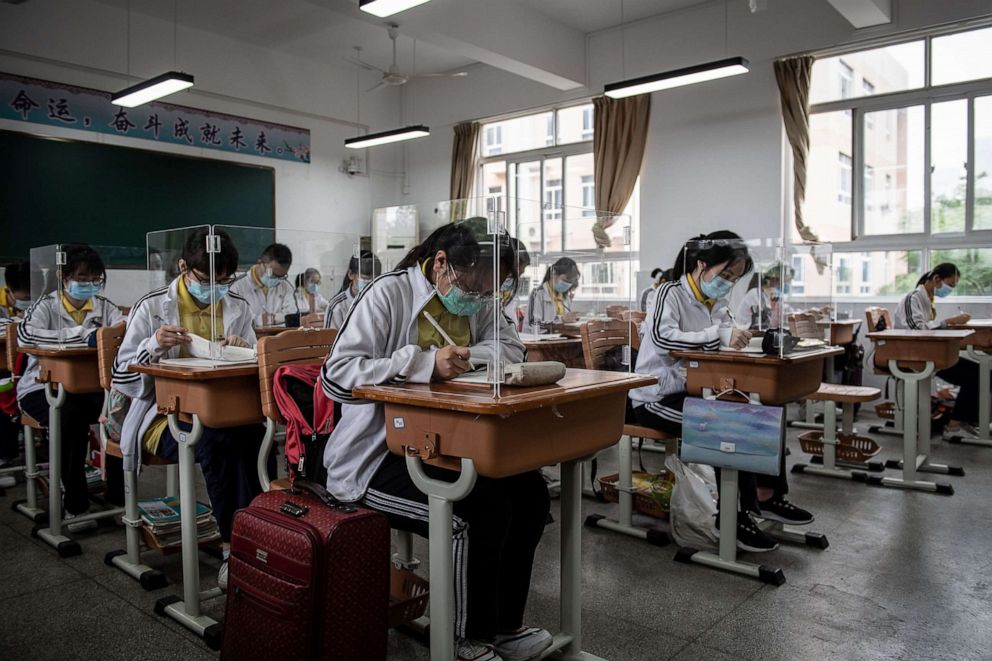
China was once the epicenter of the coronavirus pandemic. The first cases of infection were detected in the central city of Wuhan back in December. Since then, the Chinese mainland has reported 82,885 confirmed cases of COVID-19 and 4,633 deaths. Currently, 295 people with the disease remain hospitalized, according to the National Health Commission.
Some schools in China have begun gradually reopening and allowing pupils back into classrooms in recent weeks. Around 57,000 high school students returned to classrooms in Wuhan on Wednesday for the first time since the city -- ground zero of the pandemic -- was placed on lockdown on Jan. 23. All students must wear face masks and maintain social distancing.
4:06 a.m.: McDonald's employees shot over coronavirus restrictions, police say
A 32-year-old woman allegedly opened fire on employees at a McDonald's restaurant in Oklahoma City on Wednesday night after police say she became angry when she was told she couldn't eat inside due to the coronavirus pandemic.
First, the customer allegedly got into a physical altercation with a female employee at the McDonald's that evening when she was informed that the restaurant's dining room was closed because of social-distancing restrictions imposed to help curb the spread of the novel coronavirus. At some point during the altercation, the female employee fell and hit her head, according to Capt. Larry Withrow of the Oklahoma City Police Department.
Then, after leaving the restaurant briefly, the customer allegedly returned with a handgun and fired multiple shots. One male employee was shot in the arm, while another male employee was hit in the neck and shoulder by what police described as bullet shrapnel. A third male employee suffered a wound in his side from bullet shrapnel, according to Withrow.
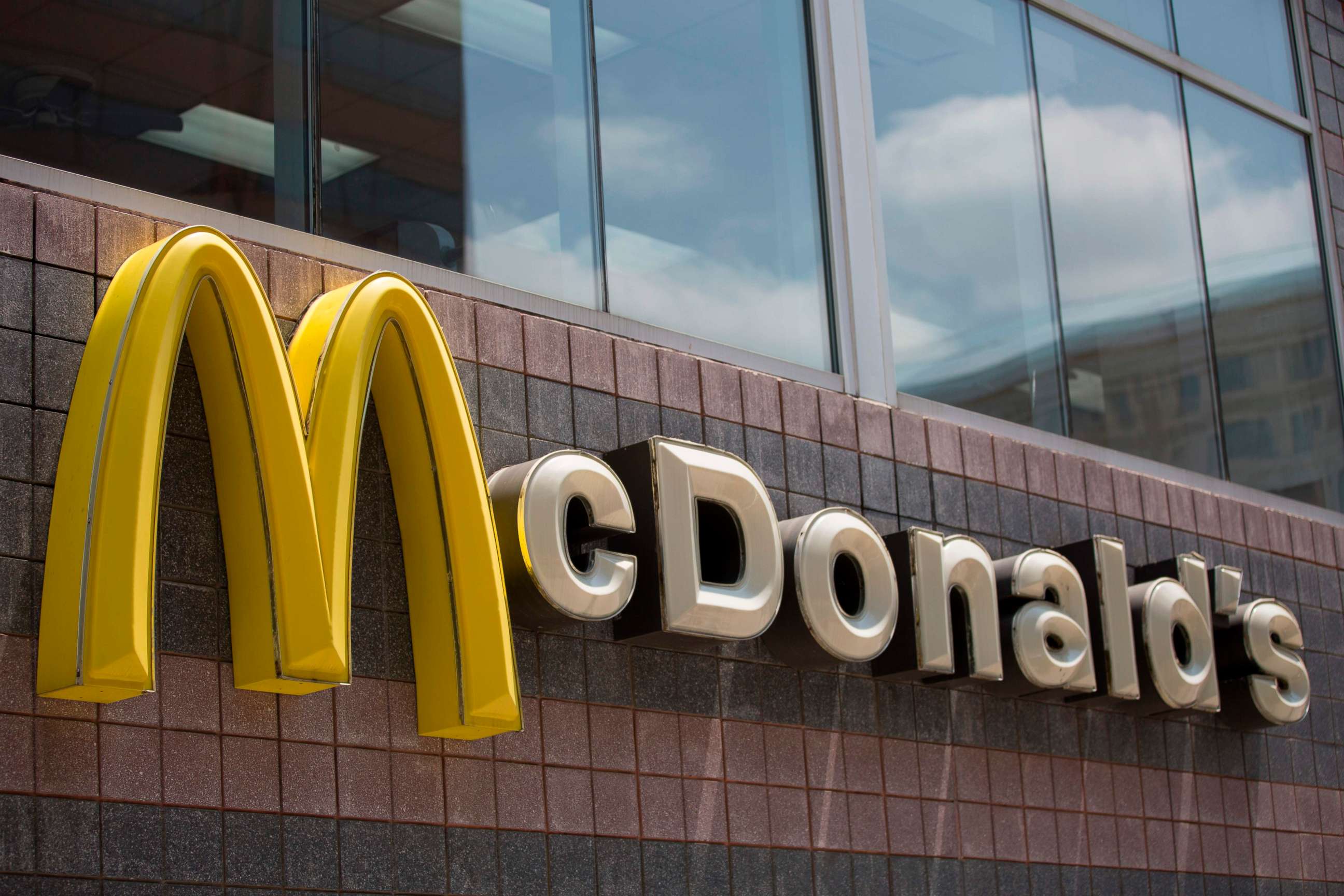
The suspect fled the restaurant on foot and was arrested a few blocks away within minutes of the shooting. The woman, whose name hasn't been released, is currently in police custody, Withrow told ABC News, adding that earlier reports indicating there were two suspects are erroneous.
Three of the injured employees were taken to a local hospital for treatment, while the fourth was treated at the scene. All injuries were non-life-threatening, Withrow said.
Oklahoma Gov. Kevin Skitt began reopening the state on April 24, with restrictions lifted on barbershops, nail salons, spas, elective surgeries and state parks. The governor allowed movie theaters, gyms and restaurants to reopen May 1.
ABC News' Gio Benitez, Mark Crudele, Ben Gittleson, Ibtissem Guenfoud, Mina Kaji, Aaron Katersky, Amanda Maile, Elizabeth Mclaughlin, Tomek Rolski, Tanya Stukalova and Rayquan Taylor contributed to this report.




